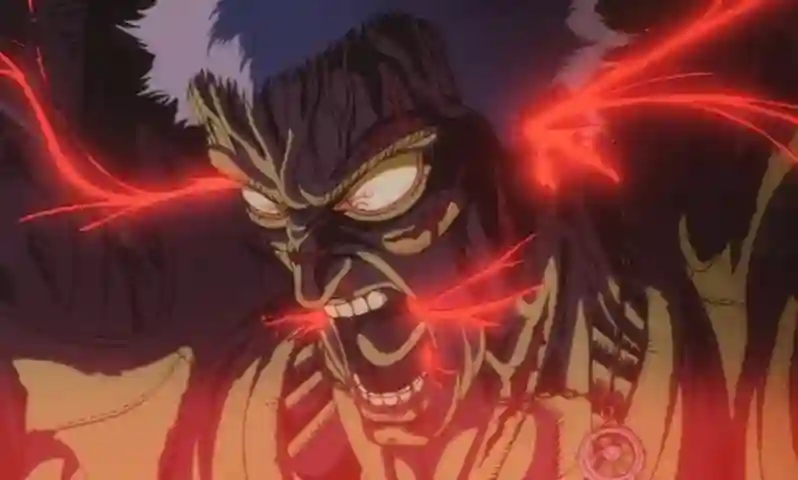In the unforgiving realm of Kentaro Miura’s “Berserk,” where shadows cling to every corner and malevolence looms large, the themes of hope and despair intertwine to create a narrative that transcends the conventional boundaries of dark fantasy. This article delves into the symbiotic relationship between hope and despair in Berserk, exploring how these themes shape the characters, narrative arc, and emotional resonance of this seminal work.
Despair: The Ominous Shadow That Lingers
From the very outset, Berserk thrusts its readers into a world steeped in despair. The Eclipse, a cataclysmic event that reshapes the destinies of Guts and his companions, serves as a harrowing introduction to the pervasive darkness that permeates the series. The trauma inflicted upon the characters during this nightmarish event becomes a haunting specter, casting a long shadow over their subsequent journeys.Despair is not merely a backdrop in Berserk; it is a tangible force that shapes the characters’ psyches and decisions. Guts, the Black Swordsman, is a living embodiment of despair, bearing the physical and emotional scars of relentless tragedy. His journey becomes a relentless odyssey through a world that seems indifferent to the suffering of its inhabitants.
Hope: Flickers Amidst the Darkness
Within the oppressive atmosphere of despair, Miura weaves delicate threads of hope, like faint stars piercing the night sky. These moments are often ephemeral, fleeting glimpses of solace that punctuate the relentless struggles of the characters. The camaraderie among the Band of the Hawk, the fragile bond between Guts and Casca, and moments of respite amidst the chaos serve as poignant reminders that, even in the darkest of worlds, hope persists.Hope becomes a precious commodity, cherished and fought for amidst the unforgiving landscape. It is the glimmer that motivates characters to press forward, no matter how overwhelming the odds. The fragility of hope in Berserk amplifies its significance, underscoring the resilience of the human spirit in the face of seemingly insurmountable challenges.
The Eclipse: Despair’s Pinnacle and Catalyst for Change
The Eclipse, a pivotal event in Berserk, epitomizes the series’ exploration of hope and despair. As the characters are thrust into a nightmarish realm of betrayal and sacrifice, the narrative plunges to its lowest depths. The Eclipse is a crucible where hope is systematically extinguished, leaving in its wake a maelstrom of despair that reshapes the fates of Guts, Casca, and the Band of the Hawk.Yet, paradoxically, it is within the crucible of the Eclipse that the seeds of change are sown. The survivors, Guts and Casca, emerge from this abyss with a newfound resolve to confront the darkness that envelops their world. The Eclipse becomes a turning point—a catalyst for Guts’ relentless pursuit of vengeance and a testament to the indomitable spirit that can rise from even the deepest despair.
Casca: The Fractured Soul Caught Between Hope and Despair
Casca, a central figure in Berserk, personifies the intricate dance between hope and despair. Her character arc is a tragic symphony of suffering, as she grapples with the aftermath of the Eclipse and the fragmentation of her sanity. Casca becomes a poignant representation of the fragile nature of hope in the face of overwhelming trauma.The narrative exploration of Casca’s character delves into the complexities of mental health and the challenges of finding hope amidst the shadows of despair. Her journey becomes a microcosm of Berserk’s thematic richness, highlighting the delicate balance between resilience and vulnerability.
The God Hand: Architects of Despair
The God Hand, malevolent entities that manipulate the destinies of mortals, embody the cosmic forces that perpetuate despair in Berserk. As architects of fate and agents of the abyss, the God Hand weave a tapestry of suffering that extends beyond the mortal realm. Their influence underscores the series’ existential exploration of the human experience amidst the cosmic machinations of despair.
Legacy of Despair: Miura’s Untimely Passing
Tragically, the real world experienced a profound sense of despair with the untimely passing of Kentaro Miura in 2021. The uncertainty surrounding the conclusion of Berserk left fans grappling with an unfinished narrative, a void that mirrored the thematic shadows within the series. Miura’s passing added an unforeseen layer of emotional resonance to the themes of hope and despair that permeate Berserk, as the world mourned the loss of a visionary creator.Conclusion: In the tapestry of Berserk, hope and despair are not mere narrative devices; they are visceral experiences etched into the very fabric of the series. Kentaro Miura’s magnum opus serves as a testament to the duality of the human condition, navigating the abyss within us all. As readers traverse the unforgiving world of Berserk alongside its tortured characters, the interplay between hope and despair becomes a mirror reflecting the profound complexities of existence. In the legacy of Berserk, the exploration of these themes endures, a timeless reflection on the enduring resilience of the human spirit within the shadow-laden landscapes of fantasy and reality alike.


